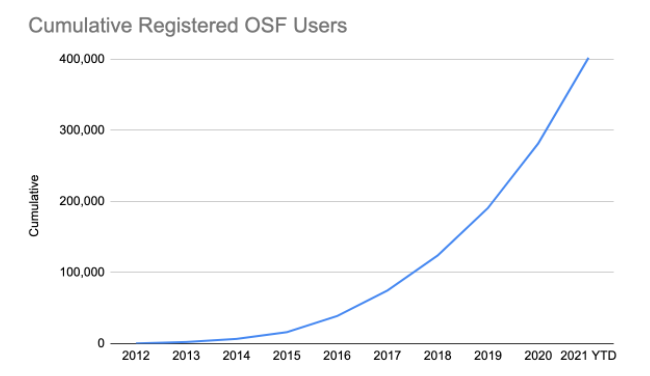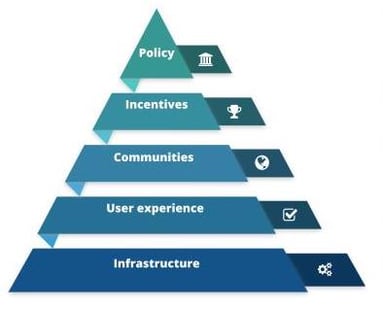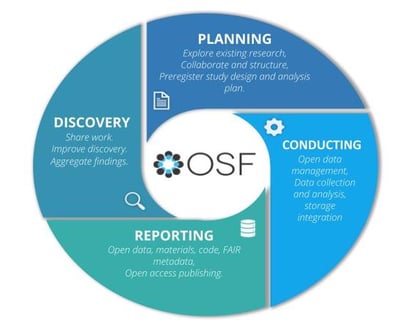
The Open Science Framework (OSF), an open-source research collaboration and management platform by the Center for Open Science (COS), just achieved 400,000 worldwide registered users.
The OSF community of users represent all domains of science and engineering and have registered more than 80,000 studies and shared millions of data files and other research content. In 2021 alone, OSF users posted more than 2.6M files, translating to 7,985 files daily. Moreover, research consumers are accessing and downloading content at high rates with over 10M unique visitors in 2021 downloading more than 51M files. OSF is quickly becoming a standard registry and repository service across domains indicated by OSF’s non-linear growth, achieving this milestone nine years after launching in November 2012.
 Research innovation among communities is made possible by the adoption of practices that make data open, the research process transparent, increase the rigor of research study designs, and catalyze the evolution of the open science infrastructure. The interdependence of the behaviors and the tools to enable them are part of the COS theory of change, based on mutually reinforcing activities: technology, norms, incentives, policy, and research.
Research innovation among communities is made possible by the adoption of practices that make data open, the research process transparent, increase the rigor of research study designs, and catalyze the evolution of the open science infrastructure. The interdependence of the behaviors and the tools to enable them are part of the COS theory of change, based on mutually reinforcing activities: technology, norms, incentives, policy, and research.

The research lifecycle includes planning and designing research and data management, conducting the research, collecting and analyzing data, reporting outcomes and sharing outputs, and fostering preservation, discovery, and reuse of the outputs and outcomes. By connecting the research lifecycle, OSF supports increasing rigor, transparency, and sharing of research.
Successful adoption of OSF requires meeting a variety of use cases, connecting the services that are important to communities of users, and meeting the regional requirements and regulations for data management services.
COS exists to change scientific research, forever, through increasing openness, integrity, and reproducibility of research. As new evidence and innovations to the research process emerge to address cultural challenges, the processes among researchers and consumers of research similarly change. These efforts work towards aligning incentives and the act of getting research published is rewarded, rather than getting it right.
COS was recently selected as the inaugural institutional recipient of the Einstein Foundation Award for Promoting Quality in Research that "aims to provide recognition and publicity for outstanding efforts that enhance the rigor, reliability, robustness, and transparency of research in the natural sciences, the social sciences, and the humanities, and stimulate awareness and activities fostering research quality among scientists, institutions, funders, and politicians." that enables the adoption of open practices across the research lifecycle. OSF was cited for “providing a toolbox to make the entire research process transparent, accessible, collaborative, and verifiable – from the initial ideas through to the final research findings.”
Check out Einstein Foundation’s video highlighting COS and OSF:

6218 Georgia Avenue NW, Suite #1, Unit 3189
Washington, DC 20011
Email: contact@cos.io

Unless otherwise noted, this site is licensed under a Creative Commons Attribution 4.0 International (CC BY 4.0) License.
Responsible stewards of your support
COS has earned top recognition from Charity Navigator and Candid (formerly GuideStar) for our financial transparency and accountability to our mission. COS and the OSF were also awarded SOC2 accreditation in 2023 after an independent assessment of our security and procedures by the American Institute of CPAs (AICPA).
We invite all of our sponsors, partners, and members of the community to learn more about how our organization operates, our impact, our financial performance, and our nonprofit status.